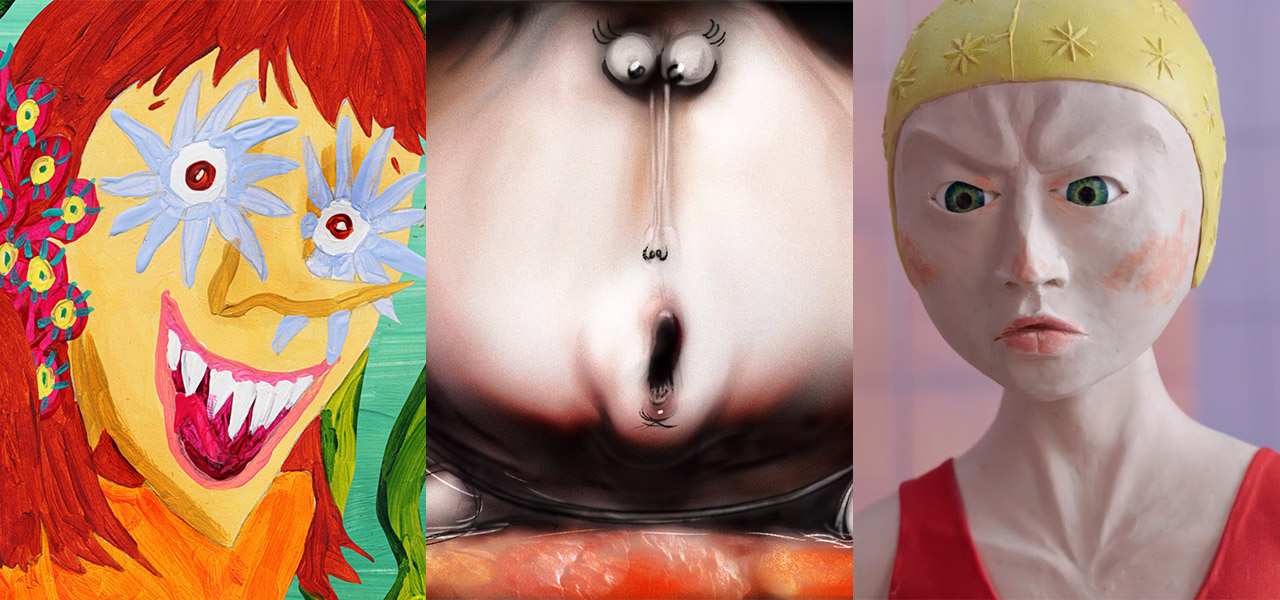
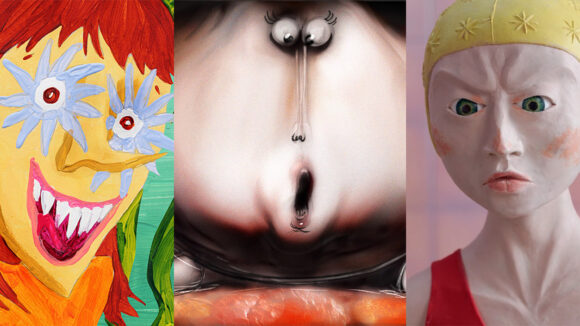
10 Shorts You Don’t Want To Miss At Annecy 2025
While Hungary is the country of focus at this year’s Annecy animation festival, it’s Canada that’s stealing the spotlight in both the short and feature competitions. The Canucks boast three feature films in this year’s lineup, alongside five Official Short entries (six if you count resident Canadian Theodore Ushev’s latest French production) and two more in the Perspectives strand. In the face of relentless — and frankly misguided — bullying from our southern neighbours, Canadian animation continues to shine with power, originality, and sheer diversity.
But enough patriotism: let’s get to the shorts you shouldn’t miss. This year’s Official Short Competition, Off‑Limits, and Perspectives programs showcase 62 films — five fewer than in 2024 — underscoring an annoying trend toward longer formats. You’ll find a mix of veterans (Priit and Olga Pärn, Thomas Renoldner) alongside a host of fresh voices, all rendered in an eclectic array of techniques, from stop‑motion and motion capture to hand‑drawn and hybrid styles.
Below are ten standout shorts that slice through the Hollywood haze engulfing Annecy’s corporate amusement‑park landscape — and, mercifully, can’t be hit with Trump‑era tariffs… yet.
Il burattino e la balena, Roberto Catani, Italy
Roberto Catani, whose previous films include the award‑winning La Sagra and La Funabola, unveils a hand‑drawn allegory in Il Burattino e la Balena. We witness Pinocchio’s first breaths: the crack of wood, a tentative toe‑tap, then the instant a simple cap transforms his playful prance into something more ominous. Ascending a tight staircase, he encounters a line of people moving with unsettling precision, as if carved from the same timber. Catani’s stark visuals blur the line between puppet and person, asking whether free will survives when strings, literal or not, pull every step.
Bread Will Walk, Alex Boya, Canada
In a world ravaged by famine, The Mill© unveils its so‑called “Miracle Loaf,” bread that not only fills your belly but transforms anyone who eats it into a living, breathing loaf. When a young boy becomes one of these cursed creations, his sister plunges into the city’s labyrinthine alleys, pursued by a ravenous mob hungry for fresh bread.
Blending Hansel and Gretel’s eerie charm with the dystopian bite of Black Mirror, Bread Will Walk unfolds as a relentless, hand‑drawn fresco in motion. Every frame pulses with raw energy, its surreal morphs and twitchy character animation exposing a world twisted by corporate propaganda and mass desperation.
Chronicity, Aleta Rajic, Bosnia and Herzegovina
Chronicity opens with a woman casually swatting a fly, then whisks us into a dance through Sarajevo on June 28, 1914. We glimpse street vendors, flirting couples, and nosy onlookers, all caught in a delicate choreography of chance encounters. Each small diversion — a barking dog, a pickpocket’s deft hand, a stray cat in the gutter — sets off a domino effect of almost comical mishaps.
In its final moments, these interwoven threads converge on Gavrilo Princip, mere seconds before he shoots Archduke Franz Ferdinand and ignites a global conflagration. Chronicity is at once humorous, disorienting, and taut with suspense, subtly suggesting how the course of existence hinges on the smallest of decisions, and how, with one tiny change, the course of the world might have veered entirely differently.
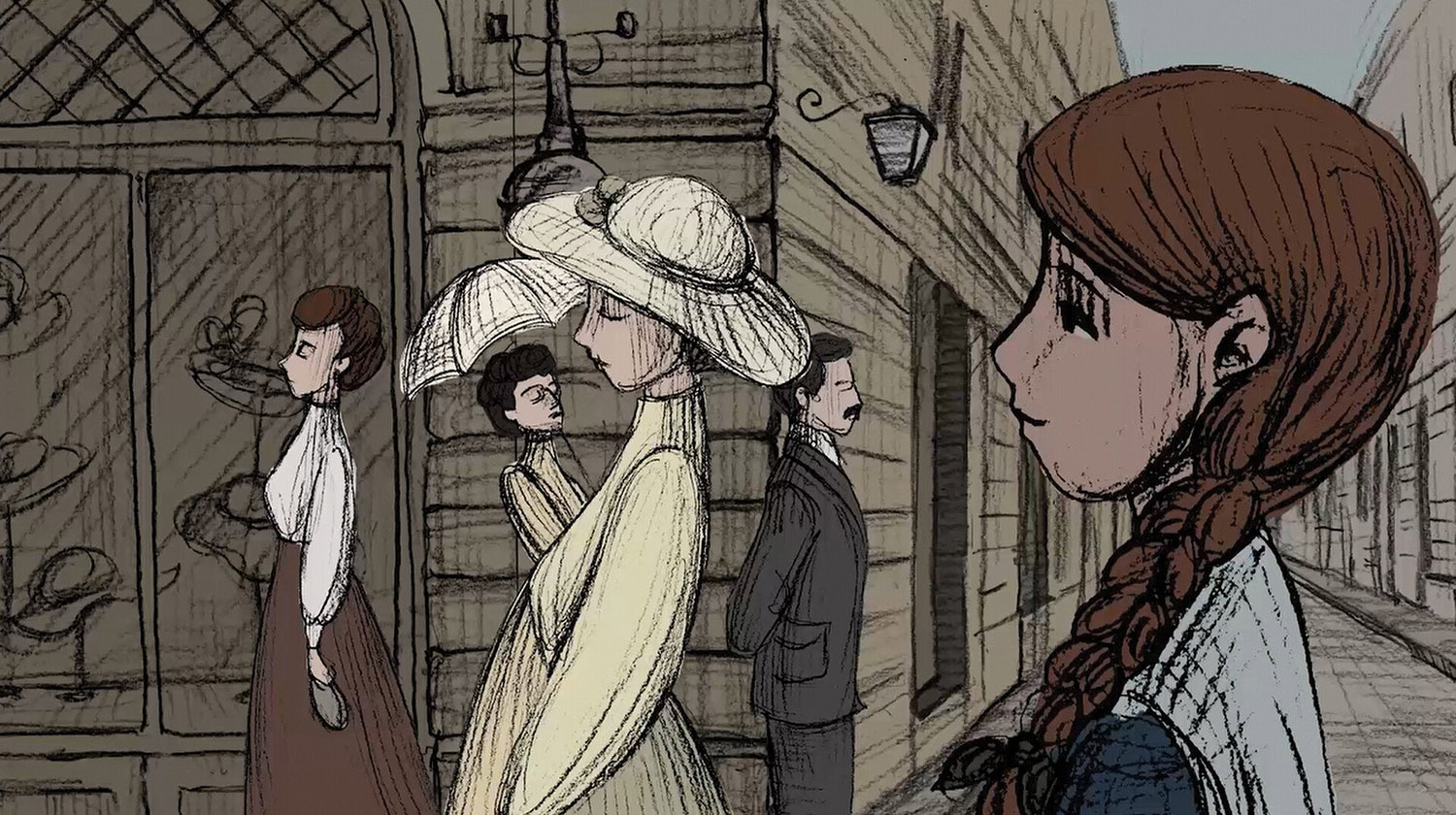
K’uchu: A Childhood Place, Alessio Del Pozo, Peru
K’uchu confronts upheaval through a universally resonant coming‑of‑age lens. The film follows Óscar, a young boy torn between the innocence of his games and the harsh demands of survival as conflict engulfs his hometown. Drawing on two defining crises — the 1980s rural‑to‑urban migration triggered by terrorist violence and the pandemic‑driven exodus from the city — Del Pozo intertwines personal memory with collective trauma. Through Óscar’s eyes, fiery, explosive colors mirror societal fragmentation, while intimate moments probe identity, masculinity, and belonging. By fusing individual and communal experiences, past and present, K’uchu becomes a vivid meditation on how childhood and memory endure amid turmoil.

The Girl Who Cried Pearls, Chris Lavis, Maciek Szczerbowski, Canada
The long‑awaited return from the Oscar‑nominated team behind Madame Tutli Putli, this stop‑motion short immerses you in miniature worlds, from the faded grandeur of a Parisian villa to the cramped intimacy of a 1910 Montréal tenement. On his 80th birthday, a wealthy grandfather catches his granddaughter stealing a rare pearl, and in telling its origin, recalls a childhood encounter with a girl whose tears transformed into jewels. Lush textures, lifelike puppets, and smooth camera moves draw you into a modern fable, while a haunting score by Patrick Watson underscores themes of greed, loss and the unexpected magic found in small wonders.
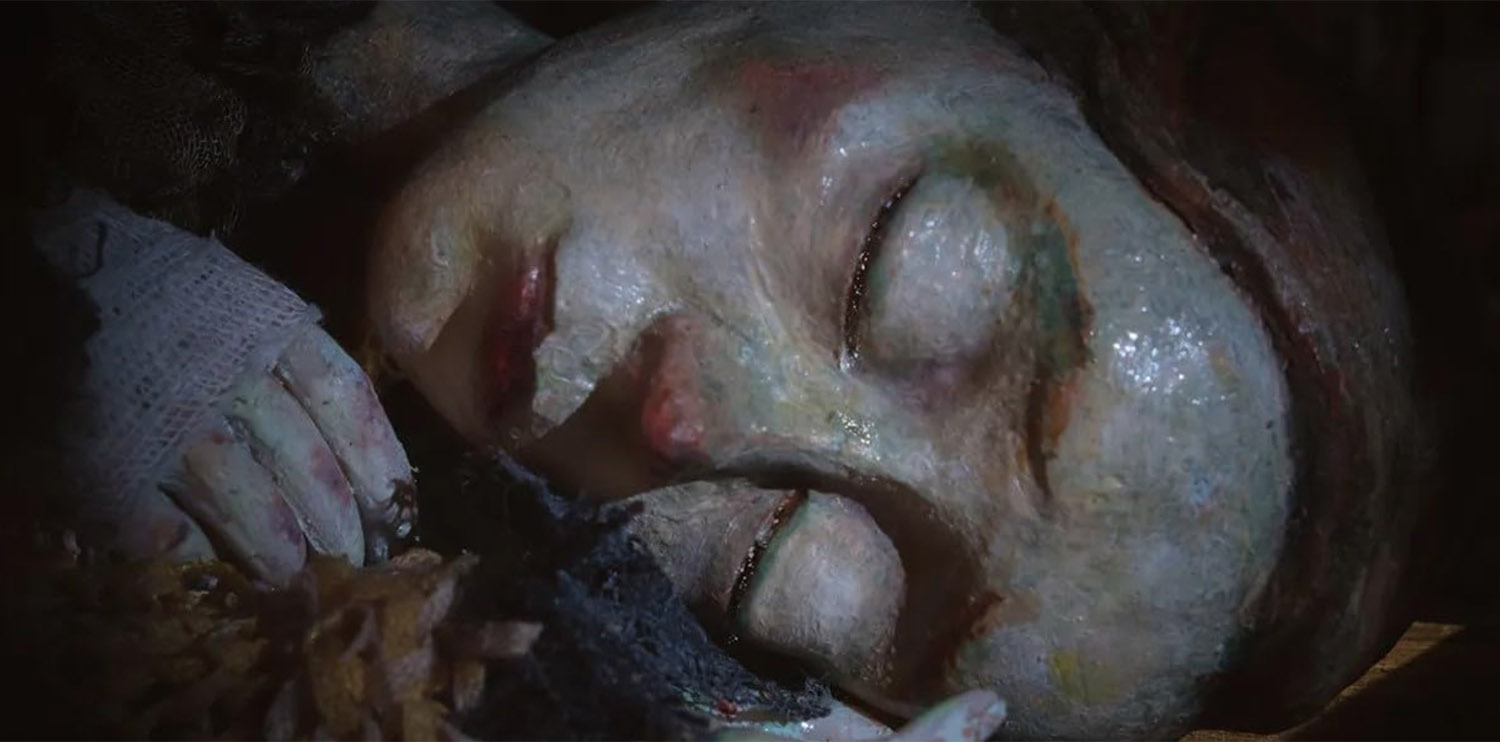
Snake Soup, Zack Demirtshyan, Armenia
A soldier sips shitty, machine-brewed coffee at a roadside rest stop. Nearby, other troops linger while a father and daughter feed coins into a claw machine whose metal arm eerily resembles a missile dropping from a drone. Soon, the men pile into the back of a truck and roll toward the front.
A hazy, dark palette and glitchy soundscape amplify the tension, foreshadowing the darkness to come. As they drive, the soldier drifts into memory: a stray cat slinking down a deserted street, the liberating feel of an open road, a peaceful afternoon fishing by a riverbank. Past and present collide until a sudden blast rips through time, fusing warm recollection with sheer panic. War steals the moments that make us human.
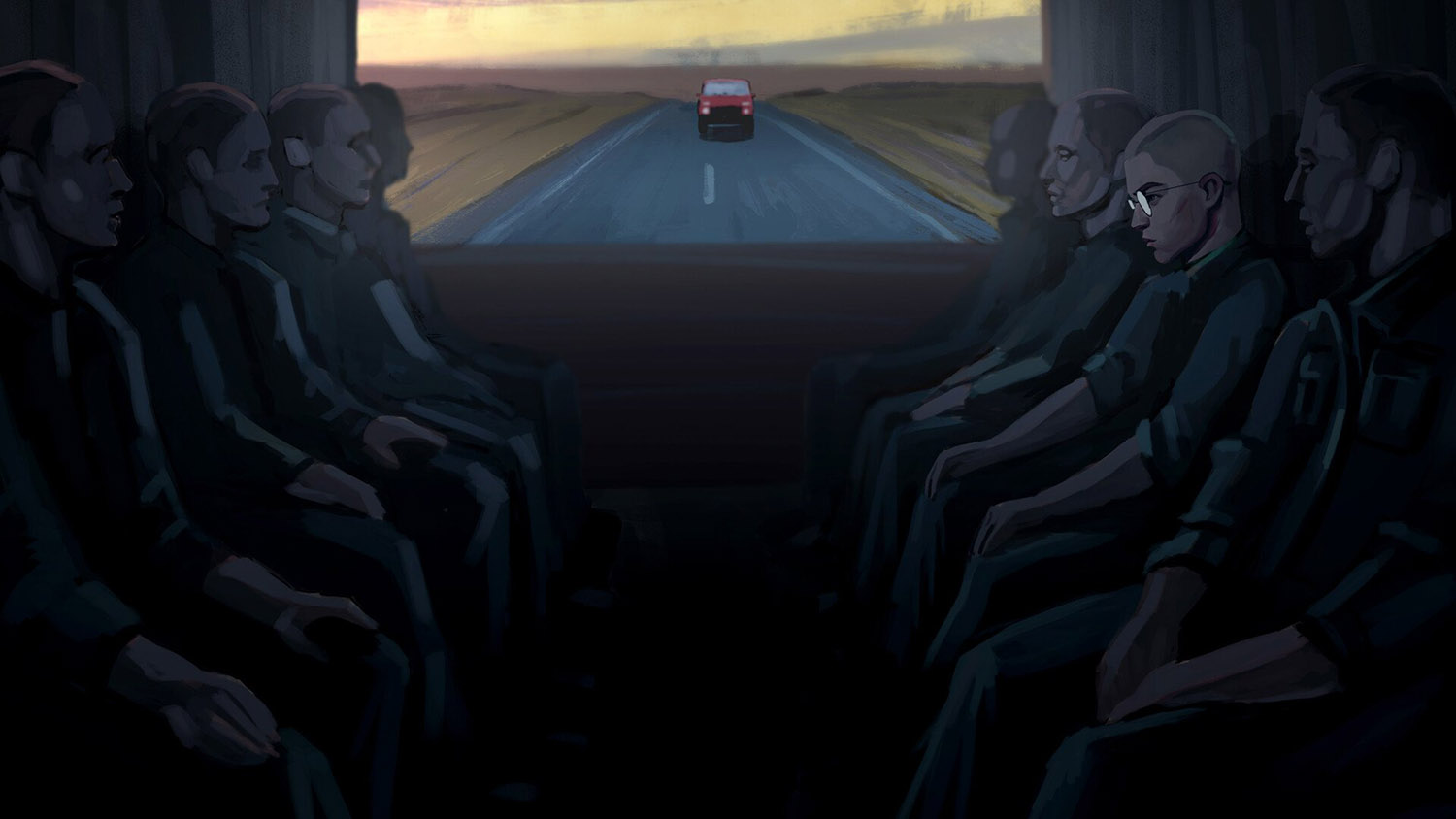
The Pool or Death of a Goldfish, Daria Kopiec, Poland
A series of surreal tableaux unfolds: a woman swims serenely, only to sink inexplicably to the pool’s bottom, tethered by a single thread. Abruptly, we’re thrust into a grotesque banquet — a woman served on a plate and devoured by a man and another woman. The next cut reveals a full‑term fetus in utero, then returns us to the same figure as a young girl, her wide‑eyed gaze echoing innocence, emptiness, confusion, and a dash of dread.
Evoking the ephemeral dreamscapes of Andrei Tarkovsky, The Pool employs stop‑motion puppets with hollow, expressionless faces to reflect the protagonist’s unprocessed grief, suffocation, and emotional entrapment. The startling transitions capture the bewilderment of adulthood, where childhood memories haunt every moment yet defy comprehension. Kopiec’s cryptic short is a dark exploration of loss and the chasm between past and present — and between mother and daughter.
By the Way, Mahboobeh Kalaee, Ali Fotoohi, Iran
Set entirely inside a single apartment, bulb‑obsessed Majid recalls the day electricity first lit his childhood home and how it sparked his lifelong fascination. Soon, his sole dream is to fashion a “fairyland of bulbs.” This lighthearted, mixed‑media reminiscence, borrowing the intimate setting and techniques of Kalaee’s earlier film The Fourth Wall, effortlessly shifts from personal and familial anecdotes to a broader cultural history, tracing both individual memories and Iran’s own evolution through the changing glow of electric light.

Dollhouse Elephant, Jenny Jokela, Finland
Following her striking short Sweet Like Lemons (2023), which dissected a fractured relationship, Jokela returns with a visual delight painted in acrylic on paper. Accompanied by a richly layered choral soundtrack, its harmonies underscoring how a single voice out of tune can shatter unity, the film probes the tension between communal bonds and individual ambition. Fluid brushstrokes warp and shift in time with the choir’s crescendos, mirroring the ebb and flow of social cohesion. Through these vivid, painterly sequences, Dollhouse Elephant leaves us pondering whether we can ever truly unite for the collective good in a world increasingly driven by personal priorities.
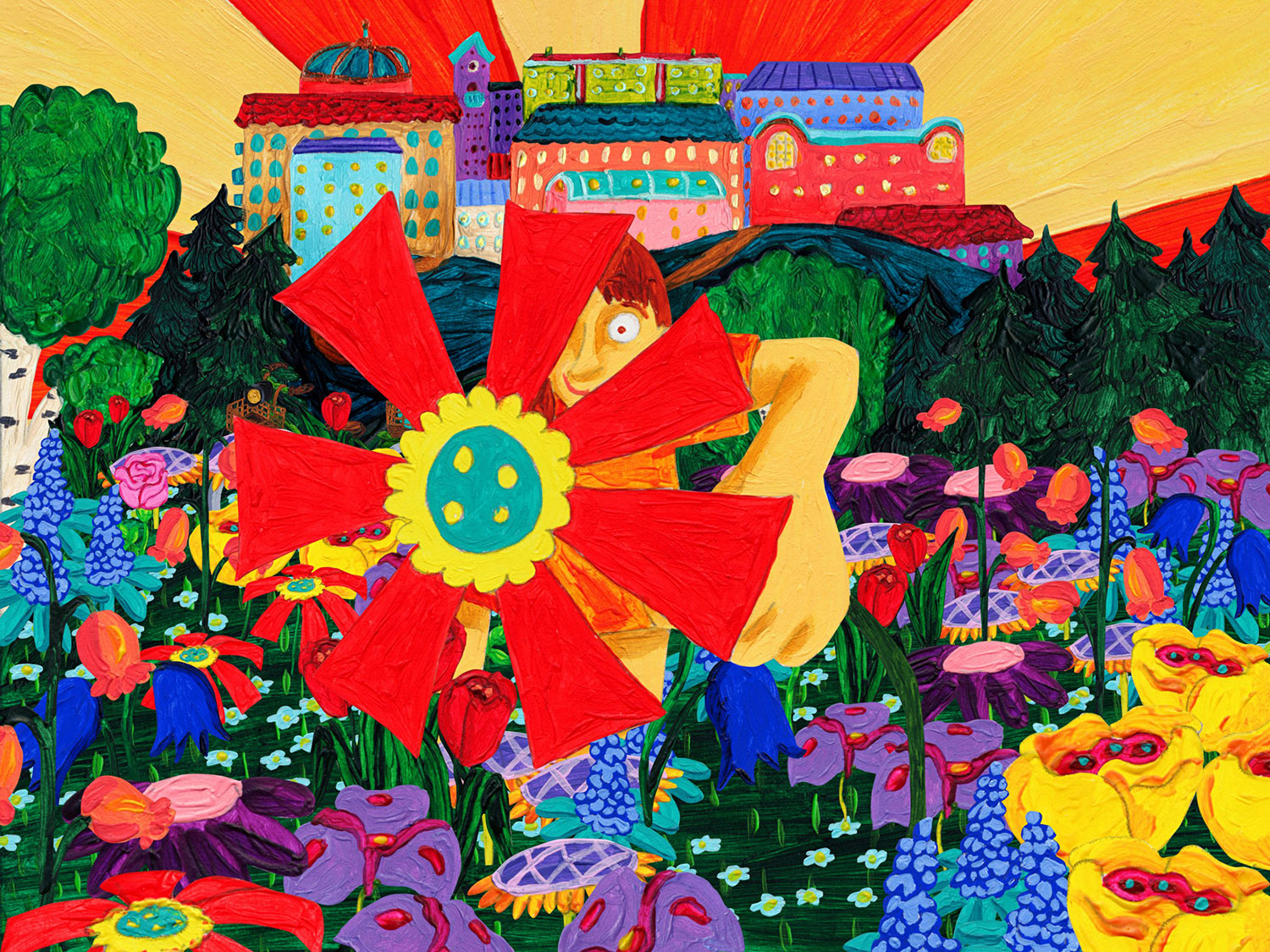
Shadows, Rand Beiruty, France/Jordan
Amid the bustle of an airport terminal, 15‑year‑old Ahlam watches travelers with quiet awe, until a stray deer brushes past her, triggering a flood of memories. We shift between her whispered anxieties and the judgmental glances of passersby as she recalls being married at 13 to an abusive, mentally unstable husband, giving birth at 14, and having her child taken away soon after. Now, fleeing Baghdad, Ahlam makes her way to the departure gate while the shadows of her past cling close.
Don’t be fooled by the film’s lush, painterly backdrops: Shadows is a visceral journey into a reality most of us cannot imagine. Based on interviews with Ahlam, its expressive visuals and shifting perspectives bring her story and memories powerfully to life, leaving us to wonder: while physical escape may be possible, can she ever truly flee the pain of her past?
Pictured at top, left-to-right: Dollhouse Elephant, Bread Will Walk, The Pool or Death of a Goldfish.

.png)